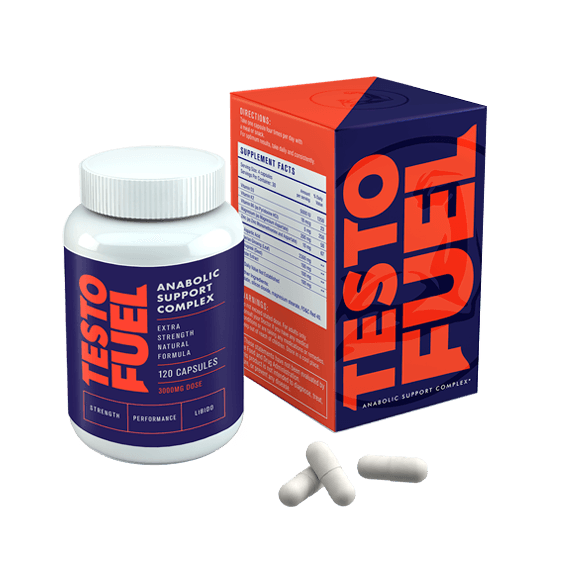Huel Side Effects
Huel is one of the biggest meal replacement companies in the world, and it makes a very decent product. But that’s not to say that it is perfect! In this article, we are taking a look at some of the most commonly reported Huel side effects. We’re looking through Reddit and the Huel forums to find what Huel’s most loyal customers have to say. If you would like to find where Huel ranks amongst its peers, then why not check out our article on the top 5 meal replacements?
What is Huel?
Huel is a portmanteau of Human Fuel. This describes it perfectly, a powdered fuel for humans. There are many that think that Huel and other meal replacements such as Rootana, Instant Knockout Complete, and Jimmy Joy are the future of nutrition.
Low in cost, convenient, high in protein, and stacked with nutrients. Meal replacements are becoming increasingly popular among busy professionals who may not have the time to prepare healthy breakfasts and lunches.
Huel is an excellent product with a lot of loyal customers, but it is by no means perfect. There are a number of well-known side effects associated with Huel. None of these side effects is dangerous, just inconvenient! We thought it would be funny to share some of the more entertaining ones.
Huel Affecting Kidneys?
The first side effect we found was a non-starter.
While a high-protein diet may increase your chances of kidney stones, the most likely cause is a high-protein/low fibre diet [1]. As Huel (and other meal replacement shakes) is very high in fibre, the risk of kidney stones is incredibly minor. It should also be noted that the types of diet that most often cause kidney stones are diets high in animal protein [2]. Huel only uses plant-based protein.
Drinking lots of water can help to reduce your risk of kidney stones, and a diet based around Huel should help with that.
On balance, this isn’t really a side effect. The information is second-hand and anecdotal and may not even have been caused by Huel in the first place. But as it is one of the most commented-on posts on the thread, we thought it best to respond.
Does Huel Cause Headaches?
While trawling through the Huel forum, one thing we found quite a few times was a complaint that it was causing headaches.
The vast majority of these complaints were in 2016, and it is worth noting that Huel has had its formula changed several times since then. But there were complaints as recently as October 2020. These complaints are a little difficult to address, as they are not particularly scientific.
None of the posts have evidence that it is the Huel causing their headaches, they just happened to have a headache and immediately decided it was due to Huel.
However, persistent headaches over a long time is a different matter. The idea that it might be the artificial sweeteners is intriguing.
According to a 2006 study, sucralose (the sweetener used in Huel) very rarely causes headaches [3]. Unlike aspartame which can trigger headaches in a very small percentage of people [4]. The chances of being allergic to either sucralose or aspartame are relatively small, but it is still possible.
The poster may want to consider talking to their doctor, or alternatively trying a meal replacement such as Rootana that is free from artificial sweeteners. That way they could find out whether the sweeteners are the root cause.
Of course, they could be getting headaches for a number of other reasons, and they may have absolutely nothing to do with Huel, or their diet.
Does Huel Cause Gas?
We’ve tried to be as fair as possible up until now, but after reading hundreds of comments, we have to say that Huel absolutely causes room-clearing, life-changing, gas. At least for the first few weeks.
A month? That is a very long time to be dealing with bad gas!
There are several reasons why Huel causes bad gas, and to be fair to Huel its not something that they can do much about.
Some of the thickeners and other ingredients in Huel can cause gas, and high-protein diets may affect the smell. The biggest cause is the increased fibre that most people will be experiencing. Fibre is a crucial component of a healthy diet, and yet many people don’t get anywhere near enough fibre in their diet.
Adding Huel to your diet will lead to a large increase in dietary fibre, which will cause a certain amount of disruption in your digestive system. This can take a week or two to clear up, or much longer in some rare cases.
Does Huel Cause Nausea?
There certainly seem to be a number of people who have experienced nausea after consuming Huel, but considering how many people use Huel, the chances of nausea affecting you are probably very small.
The meals are designed to be as free from allergens as possible, and none of the ingredients is particularly rare or exotic. Nausea could be caused by your body not being used to a liquid diet. But the most likely cause is non-Huel related.
Sometimes we feel sick, and we don’t know why. If someone is frequently feeling nauseated by Huel, then either stop taking it or see a doctor.
Does Huel Have Side Effects?
Cognitive bias is incredibly common in people, and the internet can exacerbate the issue. There are a number of well-known behavioural traits that cause this. Many of Huel’s side effects will only affect a very small number of people, and they may not even be due to Huel.
- The bandwagon effect “everyone here knows that Huel causes headaches”. The idea is that because everyone in your small forum of 50 people accepts X as the truth then it must be true. This is highly common in forums and message boards.
- Confirmation bias, where you read 3 stories that backup your opinion and ignore 7 stories that disagree with your opinions is another issue.
- Clustering Illusion, where you interpret very small clusters of data as important. “Four people had headaches after eating Huel, that’s a lot, they can’t all be wrong” while ignoring the 900,000 users who didn’t report a headache.
That being said, no food or food product on earth has a perfect record when it comes to side effects. A tall glass of milk could affect half of the world in a bad way due to lactose intolerance. The other half would have no side effects whatsoever.
Does Huel have side effects? Sure. But the side effects won’t affect the vast majority of people and will be pretty mild for the majority of those affected. If you are experiencing side effects then either stop taking Huel or talk to a doctor.
If you’re interested in learning more about Huel and other meal replacement shakes, then check out our article on the best 5 meal replacement shakes for weight loss, building muscle, and health.
References
[1] https://www.nhs.uk/conditions/kidney-stones/causes/
[2] https://www.health.harvard.edu/blog/5-steps-for-preventing-kidney-stones-201310046721
[3] https://pubmed.ncbi.nlm.nih.gov/16618274/
[4] https://pubmed.ncbi.nlm.nih.gov/7936222/
Meal Replacements

